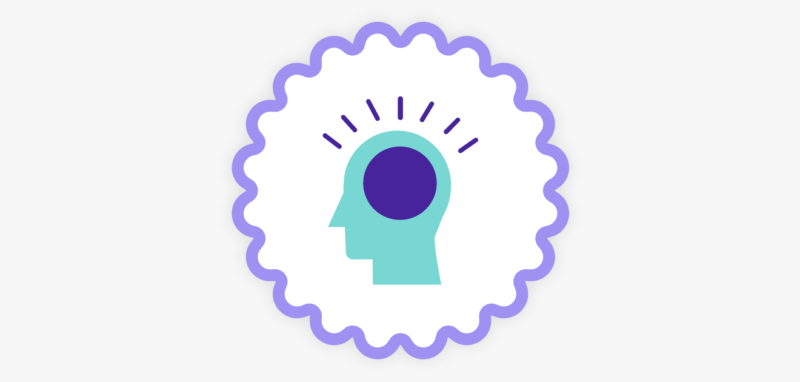Tech skill
SQL Skills
All about SQL
SQL (Structured Query Language) is a domain-specific language used for managing and manipulating data in relational database management systems (RDBMS). It was first developed by IBM in the 1970s. It has since become the standard language for querying, updating, and administering databases.
SQL provides a set of powerful and standardized commands for performing various database operations, including querying data with SELECT statements, modifying data with INSERT, UPDATE, and DELETE statements, and managing database objects like tables, views, indexes, and stored procedures.
Commonly used implementations of SQL include Oracle, IBM’s DB2, Postgres, MySQL, and SQLite. Notably, SQLite is not a client/server system. Rather, it’s an embedded database used as a core application-level storage system in macOS, iOS, and Android.
There’s a lot of debate over what constitutes a “real” relational system. Some widely used database systems famously lacked features Codd considered foundational to the relational model, such as “foreign keys”. The flexibility of SQL has proven so powerful that many non-relational systems (e.g. Apache Spark) have implemented subsets or variants of the language to make it easier for people to draw upon their capabilities.
What to use SQL forSQL offers a wide range of capabilities and features, making it suitable for various data management scenarios. Here are some key applications of SQL:
- Data Retrieval and Analysis: SQL is used for retrieving and analyzing data stored in relational databases. With SELECT statements and aggregate functions like SUM, AVG, and COUNT, developers can extract valuable insights from large datasets and generate reports, charts, and dashboards to support decision-making and business intelligence initiatives.
- Data Manipulation and Transaction Control: SQL is used for manipulating and controlling data in relational databases. With INSERT, UPDATE, and DELETE statements, developers can add, modify, and remove records from database tables, while transaction control statements like COMMIT, ROLLBACK, and SAVEPOINT ensure data integrity and consistency.
- Data Definition and Database Administration: SQL is used for defining and managing database objects and structures. With statements like CREATE, ALTER, and DROP, developers can create, modify, and delete tables, indexes, views, and constraints, while administrative commands like GRANT and REVOKE control access permissions and privileges.
- Data Modeling and Design: SQL is used for modeling and designing database schemas and relationships. With concepts like normalization, denormalization, and entity-relationship modeling, developers can design efficient and scalable database schemas that reflect the underlying business requirements and data relationships.
- Stored Procedures and Functions: SQL is used for defining and executing stored procedures and functions. With PL/SQL (for Oracle databases) or T-SQL (for Microsoft SQL Server), developers can encapsulate complex business logic and data processing tasks into reusable modules that can be invoked from SQL queries or application code.
Companies of all sizes use Hired to find engineers with SQL skills
What is an SQL developer?Here’s what it means to be an SQL developer:
- Proficiency in SQL: An SQL developer is fluent in writing SQL queries, including understanding SQL syntax, data types, operators, and functions. They are familiar with SQL standards like ANSI SQL and database-specific dialects like T-SQL (for SQL Server), PL/SQL (for Oracle), and MySQL’s SQL, and know how to write efficient and optimized queries that retrieve and manipulate data effectively.
- Database Design and Modeling: An SQL developer has expertise in database design and modeling, including understanding normalization, denormalization, and entity-relationship modeling techniques. They know how to design database schemas that reflect the underlying business requirements and data relationships, and how to optimize database structures for performance and scalability.
- Query Optimization and Performance Tuning: An SQL developer has skills in query optimization and performance tuning for improving the speed and efficiency of SQL queries. They understand database indexing, query execution plans, and query optimization techniques like query rewriting, query hints, and table partitioning, and know how to apply them to optimize query performance in production environments.
- Data Analysis and Reporting: An SQL developer has skills in data analysis and reporting for generating insights and visualizations from database data. They are familiar with reporting tools like SQL Server Reporting Services (SSRS), Tableau, and Power BI, and know how to write SQL queries and stored procedures to extract, transform, and load data into reports and dashboards.
- Database Administration and Maintenance: An SQL developer has skills in database administration and maintenance for managing and monitoring database performance, security, and availability. They know how to configure database settings, monitor database health, and troubleshoot database issues, and how to perform routine maintenance tasks like backup and recovery, database tuning, and security patching.
Here are some of the most important skills for SQL developers in 2024:
- Big Data and NoSQL Technologies: SQL developers need skills in big data and NoSQL technologies for working with large-scale data storage and processing systems. They should be familiar with NoSQL databases like MongoDB, Cassandra, and Redis, and know how to integrate SQL and NoSQL databases to build hybrid data architectures that combine the strengths of both technologies.
- Cloud Platforms and Database as a Service (DBaaS): SQL developers should have skills in cloud platforms like AWS, Azure, and Google Cloud Platform (GCP) for deploying and managing databases in the cloud. They should understand cloud-based database services like Amazon RDS, Azure SQL Database, and Google Cloud SQL, and know how to migrate on-premises databases to the cloud and optimize database performance and cost in cloud environments.
- Machine Learning and AI Integration: SQL developers need skills in machine learning and AI integration for building intelligent applications that leverage predictive analytics and data-driven insights. They should understand SQL’s role in machine learning workflows, and know how to use SQL queries and stored procedures to prepare and analyze data for machine learning models, and how to integrate machine learning models into SQL-based applications.
- DevOps and Automation: SQL developers need skills in DevOps practices and automation tools for streamlining database development, deployment, and operations. They should be familiar with tools like SQL Server Data Tools (SSDT), Redgate SQL Change Automation, and Liquibase, and know how to use them to automate database schema changes, version control database code, and implement continuous integration and deployment (CI/CD) pipelines for SQL-based applications.
SQL resources
Check out our resources to continue sharpening your SQL skills.
Hired profiles help developers showcase their top tech skills
After passing Hired skills assessments, candidates have the chance to showcase their skills to employers. They can opt to present an ‘Assessments’ badge on their profile. Candidates may take various assessments including Programming Skills, Full Stack, Backend, Frontend, iOS, Android, Debugging, Dev Ops Generalist, and Dev Ops AWS.
Find SQL jobs on Hired.
Hiring SQL developers can bring numerous benefits to your organization:
- Data Management Expertise: SQL developers bring expertise in managing and manipulating data in relational databases, enabling them to design efficient database schemas, write optimized SQL queries, and maintain data integrity and consistency.
- Business Intelligence and Insights: SQL developers bring skills in data analysis and reporting, enabling them to generate insights and visualizations from database data that drive business decision-making and competitive advantage.
- Database Performance and Scalability: SQL developers bring skills in query optimization and performance tuning, enabling them to improve the speed and efficiency of SQL queries, and scale databases to handle growing data volumes and user loads.
- Security and Compliance: SQL developers bring skills in data privacy and security, enabling them to protect sensitive data, comply with regulatory requirements, and mitigate security risks and vulnerabilities in database applications.
Looking for candidates skilled in SQL? Technical assessments are a multi-pronged solution. They allow you to streamline the hiring process and reduce bias with tech skill-focused benchmarks.
Hired Assessments offer a library of hundreds of questions and customizable coding challenge campaigns tailored to technical preferences. Centralize and standardize your evaluation process as you surface top talent with specific, hard-to-find skills.
See how Mastercard and Axon used Hired Assessments to vet top candidates.
Resources you’ll love

How to Use Coding Challenge Events to Build Tech Talent Pipeline
About this eBook Today’s recruiting and hiring teams face multiple challenges, from low brand...

Bold Predictions & Benchmarks: Master Tech Hiring in 2024 (VIDEO)
What do industry experts predict for tech recruitment this year? In this on-demand webinar, you’ll...

AI Leads to More Human-Centric Recruitment & Hiring (What!?)
Leading the way to streamlined & people-focused processes AI is more than just an ongoing...





